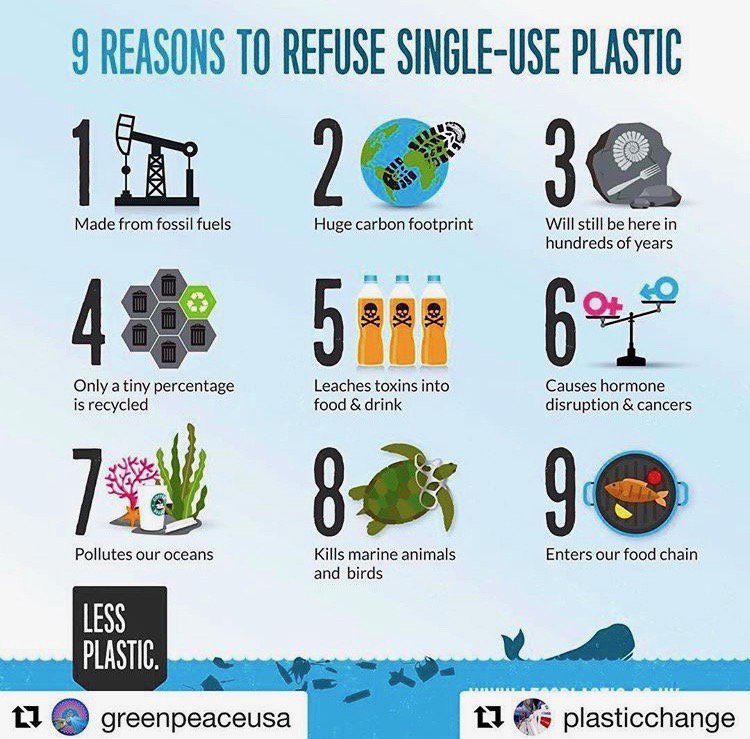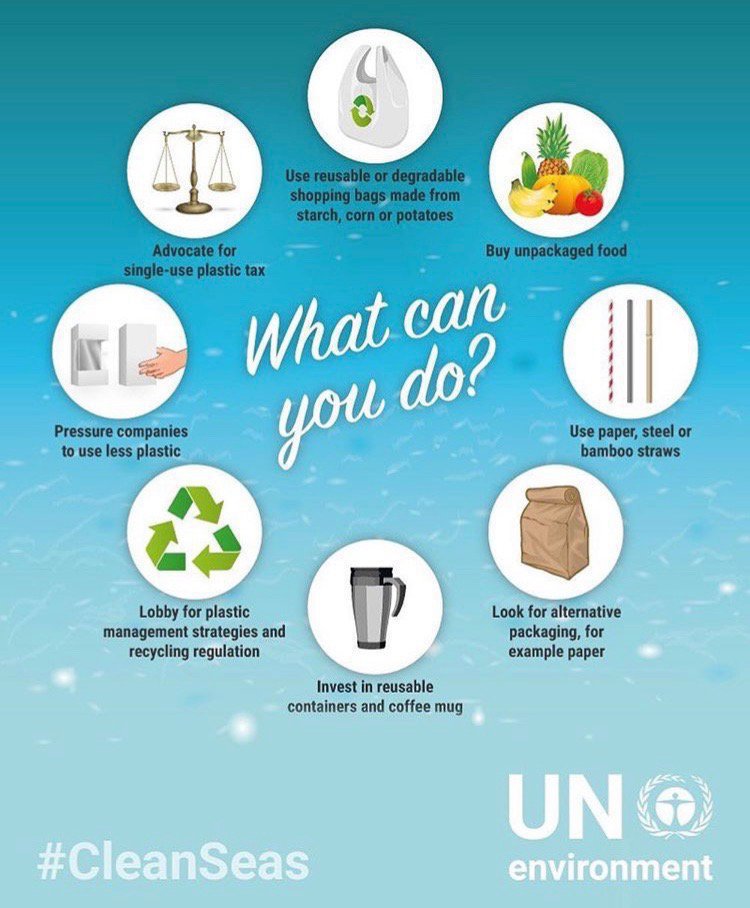Plastic pollution is a major stressor on our planet. As an environmental engineering student and more importantly simply an environmentalist, the issue of global waste constantly stresses me out, as well. I am currently enrolled in a course called Communicating Sustainability, and my fellow classmates and I embarked on a self-change journey to assess, analyze, and adjust our plastic habits in everyday life in order to gain an insight as to how this information can help us communicate with others about sustainability.
In addition to this self-change project, I have discussed on numerous occasions the detrimental impacts of single-use plastic on my talk show, The Greener Side. This self-change project has allowed me to really hone in on some societal shortcomings that come with mainstream plastic habits, making me come to certain conclusions regarding the practicality of solutions, social change movements, and more.
Understanding some context on the negative effects plastic pollution poses on our environment and ourselves was necessary for this self-change journey, and is essential to note for people who are just setting sail into the scope of environmentalism.
Photo: Greenpeace USA
 For starters, the production of plastics is based from hydrocarbons, so unsustainable sources such as crude oil and petroleum are heavily used. In addition to this, many plastics are also composed of harmful chemicals and endocrine disruptors. By simply drinking from a plastic water bottle, using a menstrual cup, or eating certain seafood, our bodies can undergo irreparable and damaging changes that can cause cancer, mutations, and other illnesses.
For starters, the production of plastics is based from hydrocarbons, so unsustainable sources such as crude oil and petroleum are heavily used. In addition to this, many plastics are also composed of harmful chemicals and endocrine disruptors. By simply drinking from a plastic water bottle, using a menstrual cup, or eating certain seafood, our bodies can undergo irreparable and damaging changes that can cause cancer, mutations, and other illnesses.
Speaking of the sea: when plastic makes its way to the ocean, it photo-degrades- namely, the sun breaks the plastic down into smaller “micro-plastics” that don’t “go away” but, rather, cause more harm due to their small size and difficulty of capturing. They’ll be present for centuries. These micro-plastics are ingested by sea creatures and make their way up the food chain, ending up in some seafood. This is one of the many reasons I and so many others have chosen to eliminate seafood from our diets.
Many individuals have grown up without giving a second thought to waste, recycling, and plastic pollution. In Austin, we are lucky to have one of the most emphasized recycling (and composting) programs in Texas.
Unfortunately, recycling shouldn’t be our go-to action. Refusal comes first. Questions like “do I really need this plastic produce bag?” and “do I really need this straw?” are good starting points.
Photo: UN Environment
 Soon, rethinking the entirety of one’s plastic habits will enter the foreground of one’s consumption. Though, plastic is cheap and often the go-to packaging material, we can’t boycott it all, and (properly) recycling our plastic after use is a good step before sending it to the landfill.
Soon, rethinking the entirety of one’s plastic habits will enter the foreground of one’s consumption. Though, plastic is cheap and often the go-to packaging material, we can’t boycott it all, and (properly) recycling our plastic after use is a good step before sending it to the landfill.
Understanding the reason why a good amount of items sent to recycling facilities are sent to landfills is critical in order to address the issue. For starters, food contamination poses an issue for the recycling process itself. The simple fix is to ensure your bottles, containers, et cetera are properly rinsed out.
Another reason is due to the lack of education on what is actually recyclable. Plastic materials are classified using the “Resin Identification Code” that utilizes a number one through seven to identify the plastic resin that the product is made out of.
To learn more about what can be recycled in Austin, there is a breadth of information online to help with this. The city of Austin has a great guide I like to use.
Some items may be more energy-intensive to recycle than others. This is why refusal of products and rethinking is especially crucial. Just like most other environmental issues, it becomes a game of weighing pros and cons between environmental issues to address.
Reflecting on my own self-change journey, I have noted some thoughts that I believe are worth sharing for the sake of provoking some more thinking.
I’ve noticed the intense prevalence of disposability in hygiene. I acknowledge my privilege regarding my greater accessibility to more expensive products such as LUSH, which is where I have been turning more towards for beauty and hygiene products that rethink packaging norms and limit plastic. The economics of consumption is a major aspect of this pollution issue, but I feel as though it isn’t productive to simply point fingers at major corporations.
It is also necessary to rethink what everyday consumers can do to productively address the plastic crisis in the hopes that corporations and society as a whole will follow suit. Again, I note my privilege in the matter. Some may not be as privileged. In fact, more often than not those affected most are those who aren’t able to make adjustments: This TEDxTalk is a great introduction into thinking of the greater scope of environmental equity, especially with regards to the plastic crisis:
The Greener Side: Sustainable Hygeine
Privilege allows me to more easily go without plastic, find alternatives, and reduce my plastic footprint. On the other hand, raising awareness due to acknowledging this privilege is my goal- awareness using the three E's of sustainability: environment, economy, and equity.
It was easy for me to ditch the single-use plastic straw because I don’t need one to drink (except for boba tea, which is when I bring a reusable straw with me!). Due to certain disabilities, some people need straws in order to drink- to survive! It would be a poor self-change project if I were to simply note that I didn’t use straws and call it a day, but it doesn’t end there. There is no simple easy fix that everyone can enact. We wouldn’t be in the rut we are if such existed.
So, one of my key takeaways from this project in particular is that it is everyone’s duty to do their best in ways they can, but without getting too overwhelmed with the state of things. Listening to others is a key part of the solution as well. Thirdly, in a more technical sense, another key aspect is the emphasis of circular consumption like many European countries tout. This can be done by rethinking the idea of throwing something “away” (where is “away”?), for example.
These key changes need to be seen on a societal level, but they all begin with the individual believing these issues are serious and then caring about them such that they help in the progress.